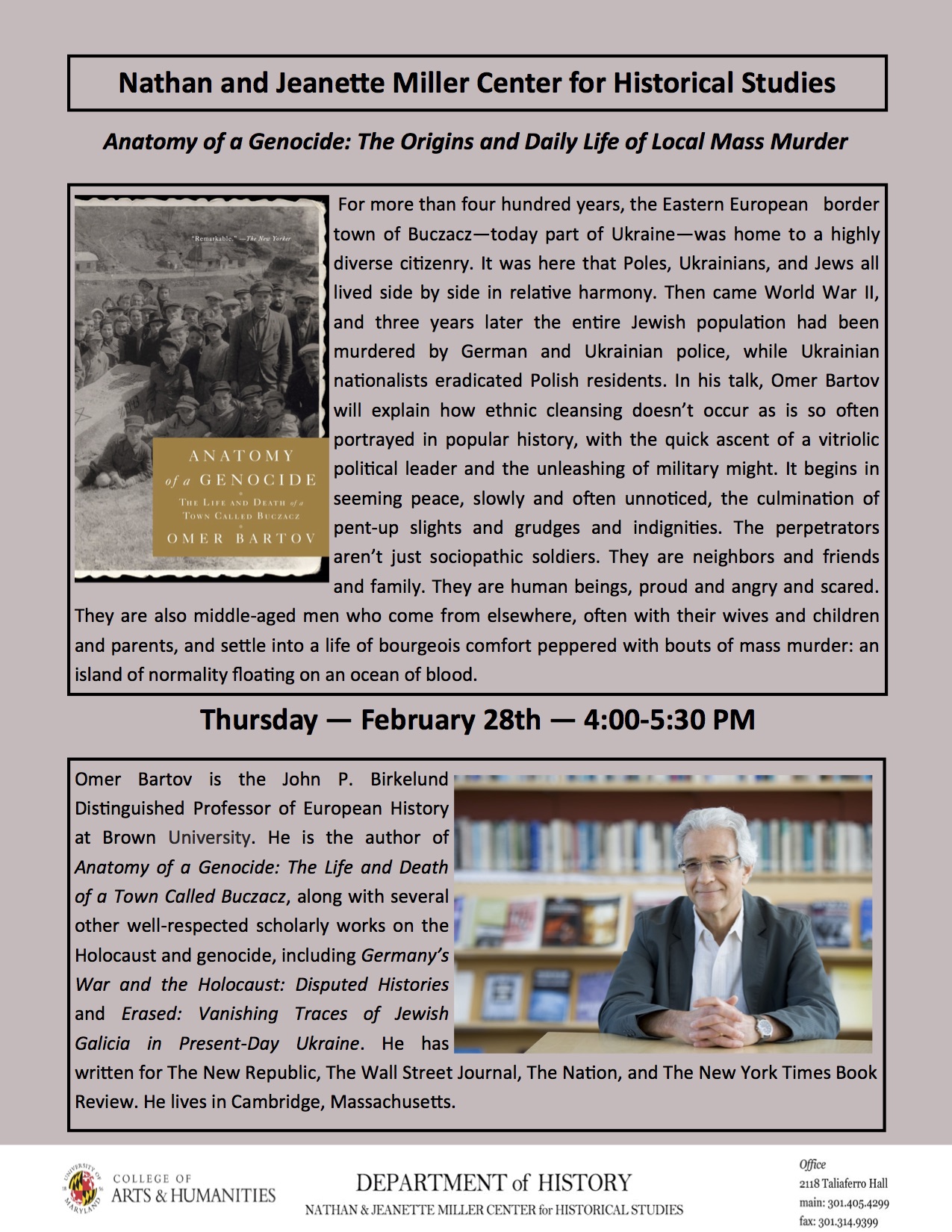Anatomy of a Genocide: The Origins and Daily Life of Local Mass Murder

Anatomy of a Genocide: The Origins and Daily Life of Local Mass Murder
History
Thursday, February 28, 2019 4:00 pm - 5:30 pm
Taliaferro Hall,
2110
Please join the Nathan and Jeanette Miller Center for Historical Studies for an afternoon event. Light refreshments will be served. Please RSVP to millercenter@umd.edu.
Omer Bartov is the John P. Birkelund Distinguished Professor of European History at Brown University. He is the author of Anatomy of a Genocide: The Life and Death of a Town Called Buczacz, along with several other well-respected scholarly works on the Holocaust and genocide, including Germany’s War and the Holocaust: Disputed Histories and Erased: Vanishing Traces of Jewish Galicia in Present-Day Ukraine. He has written for The New Republic, The Wall Street Journal, The Nation, and The New York Times Book Review. He lives in Cambridge, Massachusetts.
For more than four hundred years, the Eastern European border town of Buczacz—today part of Ukraine—was home to a highly diverse citizenry. It was here that Poles, Ukrainians, and Jews all lived side by side in relative harmony. Then came World War II, and three years later the entire Jewish population had been murdered by German and Ukrainian police, while Ukrainian nationalists eradicated Polish residents. In his talk, Omer Bartov will explain how ethnic cleansing doesn’t occur as is so often portrayed in popular history, with the quick ascent of a vitriolic political leader and the unleashing of military might. It begins in seeming peace, slowly and often unnoticed, the culmination of pent-up slights and grudges and indignities. The perpetrators aren’t just sociopathic soldiers. They are neighbors and friends and family. They are human beings, proud and angry and scared. They are also middle-aged men who come from elsewhere, often with their wives and children and parents, and settle into a life of bourgeois comfort peppered with bouts of mass murder: an island of normality floating on an ocean of blood.
Christopher Browning, author of the pathbreaking work Ordinary Men, wrote "Bartov's masterful study of Buczacz — marked by comprehensive scholarship and a compelling narrative — exemplifies the very best in current Holocaust history writing."
Christopher Browning, author of the pathbreaking work Ordinary Men, wrote "Bartov's masterful study of Buczacz — marked by comprehensive scholarship and a compelling narrative — exemplifies the very best in current Holocaust history writing."

